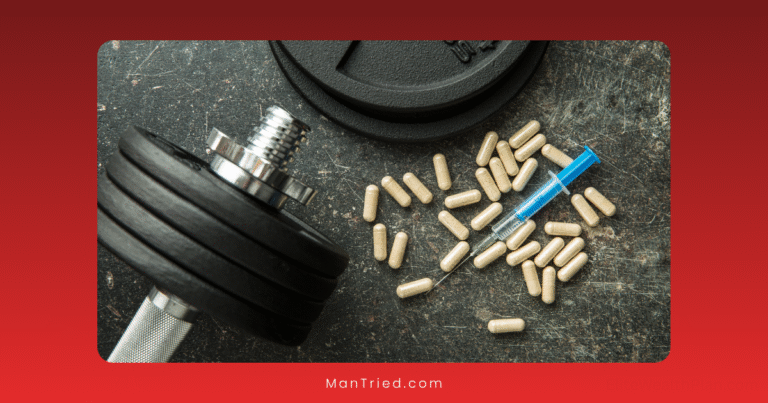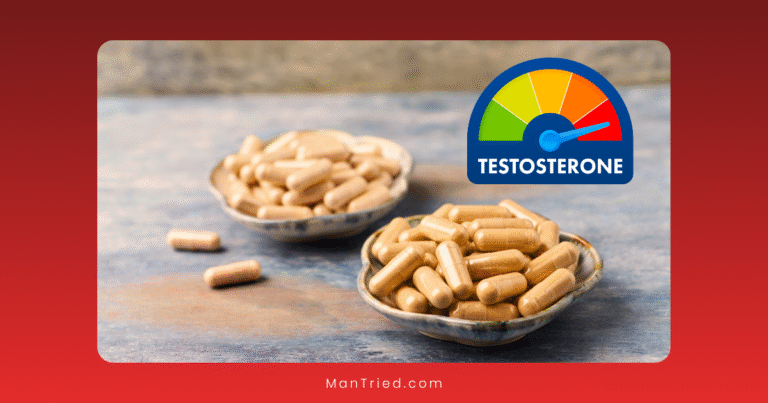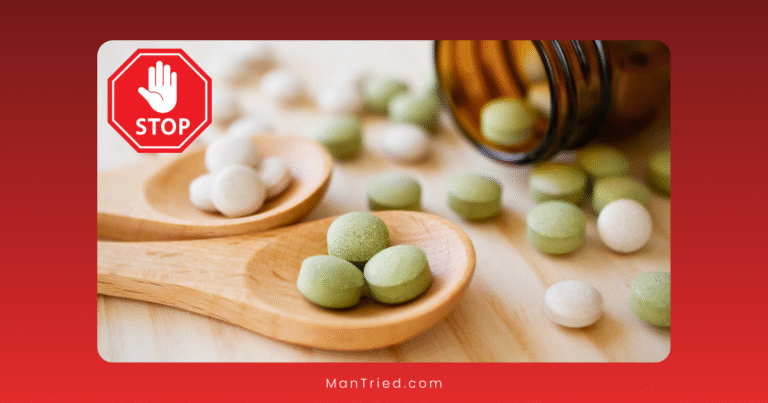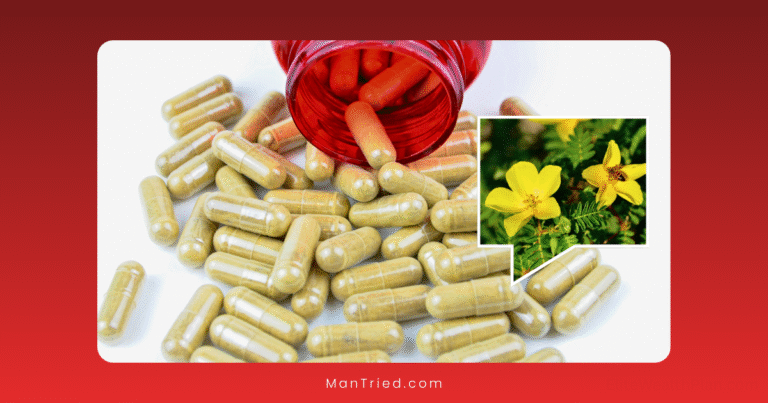B Vitamins and Libido: Which Ones Matter Most

When it comes to enhancing libido and sexual health, most people immediately think of exotic herbs or prescription medications. However, some of the most effective solutions might be hiding in plain sight within the B vitamin complex—a group of essential nutrients that play crucial roles in energy production, hormone regulation, and neurotransmitter synthesis.
While not typically marketed as sexual health supplements, B vitamins are fundamental to the biochemical processes that drive desire, arousal, and sexual function. Understanding which B vitamins matter most for libido can help you make more informed choices about your nutrition and supplementation strategy.
Let’s explore the science behind B vitamins and sexual desire, examining which ones have the strongest evidence for supporting a healthy libido in both men and women.
The B Vitamin Complex: More Than Just Energy
The B vitamin complex consists of eight distinct water-soluble vitamins, each with unique functions in the body:
- B1 (Thiamine)
- B2 (Riboflavin)
- B3 (Niacin)
- B5 (Pantothenic Acid)
- B6 (Pyridoxine)
- B7 (Biotin)
- B9 (Folate)
- B12 (Cobalamin)
While these vitamins work synergistically, research suggests that certain B vitamins have particularly strong connections to sexual health and libido. Let’s examine the top contenders and the evidence behind them.
B6 (Pyridoxine): The Neurotransmitter Maestro
Of all the B vitamins, B6 may have the most direct impact on libido through its crucial role in neurotransmitter production.
How B6 Affects Sexual Desire
Vitamin B6 serves as a cofactor in over 140 enzymatic reactions in the body, many of which are directly relevant to sexual health:
- Neurotransmitter Synthesis: B6 is essential for producing dopamine and serotonin—key neurotransmitters that regulate mood, pleasure, and sexual desire. According to research from MindLab Pro, B6 helps increase brain serotonin and dopamine levels, which can positively influence libido.
- Hormone Regulation: B6 helps regulate sex hormone production and activity. It modulates the effects of hormones by influencing their receptor sites, potentially enhancing their impact on sexual desire.
- Stress Reduction: By supporting healthy serotonin levels, B6 can help manage stress and anxiety—major libido killers for both men and women.
Research Evidence
A significant study published in Translational Andrology and Urology analyzed data from 3,875 participants and found that dietary intake of vitamin B6 was significantly associated with a reduced risk of erectile dysfunction (ED), particularly among younger men.
Men without ED consumed an average of 2.0 mg of B6 daily, while those with ED averaged only 1.6 mg per day—a statistically significant difference. After adjusting for various factors, men in the highest quartile of B6 intake had a 23% lower risk of ED compared to those in the lowest quartile.
For women, B6 appears in several formulations designed to boost female libido. A clinical study of postmenopausal women published in the Journal of International Medical Research found that a supplement containing B6 (along with other B vitamins and ingredients) significantly improved sexual function scores and desire.
B3 (Niacin): The Circulation Enhancer
Niacin stands out for its powerful effects on blood flow and circulation—critical factors for sexual arousal in both men and women.
How B3 Affects Sexual Function
Niacin influences sexual health through several mechanisms:
- Vasodilation: Niacin is known for causing the “niacin flush”—a temporary warming and reddening of the skin due to dilated blood vessels. This same vasodilating effect can improve blood flow to genital tissues.
- Cholesterol Regulation: Niacin helps lower LDL (bad) cholesterol and increase HDL (good) cholesterol, improving cardiovascular health and, by extension, sexual function.
- Energy Production: As a key component in the energy-producing coenzymes NAD and NADP, niacin supports the high energy demands of sexual activity.
Research Evidence
A landmark 2011 study cited by multiple sources, including CMH-RI, found that men with moderate to severe erectile dysfunction who took niacin experienced significant improvements compared to those taking a placebo.
Another study mentioned by Vinmec International Hospital demonstrated that niacin supplementation improved both erectile function and intercourse duration in men with ED.
For women, niacin’s circulation-enhancing effects may improve arousal by increasing blood flow to the genital area, though research specifically on women is more limited.
B9 (Folate): The Vascular Protector
Folate (also known as vitamin B9) plays a critical role in vascular health and nitric oxide production—both essential for sexual function.
How B9 Affects Sexual Health
Folate contributes to sexual health in several ways:
- Nitric Oxide Production: Folate is linked to the production of nitric oxide, a molecule that relaxes blood vessels and increases blood flow to genital tissues.
- Homocysteine Reduction: Folate helps lower homocysteine levels, an amino acid that can damage blood vessels when elevated. High homocysteine is associated with erectile dysfunction and reduced sexual function.
- Hormone Metabolism: Folate is involved in metabolizing and regulating sex hormones, potentially influencing desire and arousal.
Research Evidence
The same comprehensive study in Translational Andrology and Urology found that dietary folate intake was significantly associated with reduced ED risk in men aged 60 or younger.
Men without ED consumed approximately 528.0 mcg of folate daily, while those with ED averaged only 452.0 mcg—a difference of about 17%. In the subgroup of younger men, those in the highest quartile of folate intake had a remarkable 50% lower risk of ED compared to those in the lowest quartile.
Additionally, a study involving 100 participants found that folic acid supplementation improved erectile dysfunction severity, as noted by CMH-RI.
B12 (Cobalamin): The Energy and Nerve Supporter
Vitamin B12 is crucial for energy metabolism and nervous system function—both fundamental to sexual health and desire.
How B12 Affects Libido
B12 supports sexual function through several pathways:
- Nerve Health: B12 is essential for maintaining the myelin sheath that protects nerves, including those that transmit sexual sensation and arousal signals.
- Energy Production: B12 plays a key role in converting food into energy, combating fatigue that can dampen libido.
- Mood Regulation: B12 is involved in producing brain chemicals that regulate mood, with deficiencies linked to depression—a common cause of low sexual desire.
- Red Blood Cell Formation: B12 helps create red blood cells that carry oxygen throughout the body, supporting the energy demands of sexual activity.
Research Evidence
The NHANES study found that men without erectile dysfunction consumed significantly more vitamin B12 (4.8 mcg/day) than those with ED (4.0 mcg/day).
In the subgroup analysis of men aged 60 or younger, those in the highest quartile of B12 intake had a 33% lower risk of ED compared to those in the lowest quartile—a statistically significant finding.
For women, research from Bird and Be indicates that B12 supplementation can improve mood and decrease feelings of stress—factors that significantly impact female sexual desire.
B Vitamins and Neurotransmitters: The Biochemistry of Desire
To understand why B vitamins are so influential for libido, it’s important to examine their role in neurotransmitter production—the chemical messengers that regulate sexual desire at a neurological level.
The Dopamine-Serotonin Balance
Sexual desire is largely regulated by a delicate balance between excitatory neurotransmitters (primarily dopamine) and inhibitory neurotransmitters (primarily serotonin).
According to research published in The Journal of Sexual Medicine, hypoactive sexual desire disorder (HSDD) may be linked to an imbalance in this system—specifically, overactive serotonin activity resulting in underactive dopamine activity.
B vitamins, particularly B6, are critical cofactors in the synthesis pathways for both dopamine and serotonin. Without adequate B6, these neurotransmitters cannot be produced in optimal amounts, potentially disrupting the balance that drives sexual desire.
The Hormonal Connection
B vitamins also influence sex hormone levels, which are fundamental to libido:
- Testosterone: Essential for sexual desire in both men and women
- Estrogen: Regulates female sexual function and vaginal health
- Progesterone: Influences mood and can affect libido
The study on postmenopausal women mentioned earlier found that a supplement containing B vitamins (B1, B2, and B3) led to increased testosterone levels and decreased sex hormone-binding globulin (SHBG)—changes that would increase the amount of free testosterone available to stimulate desire.
Gender Differences in B Vitamin Effects on Libido
While B vitamins are important for sexual health in both men and women, their effects and optimal dosages may differ between genders.
For Men
In men, B vitamins appear to have the strongest impact on erectile function and the physical aspects of sexual performance:
- B3 (Niacin) shows particular promise for improving erectile function and duration
- B6, B9, and B12 work together to support vascular health and nerve function essential for erections
- The effects are most pronounced in younger men (under 60) and those without significant comorbidities
For Women
For women, B vitamins seem to influence the psychological and hormonal aspects of desire more prominently:
- B6 supports mood and hormone balance, addressing the emotional components of female desire
- B3 may enhance arousal through improved genital blood flow
- B complex vitamins collectively support energy levels and stress management—factors that strongly influence female libido
A multi-ingredient supplement containing B1, B2, and B3 studied in postmenopausal women showed significant improvements in sexual function scores, with the desire domain showing the highest increase.
Optimal Dosages and Sources
Based on the research, here are the recommended daily intakes for the B vitamins most relevant to sexual health:
Recommended Daily Intakes
| Vitamin | Men | Women | Upper Limit | Best Food Sources |
| B3 (Niacin) | 16 mg | 14 mg | 35 mg | Chicken, tuna, liver, mushrooms |
| B6 (Pyridoxine) | 1.3-1.7 mg | 1.3-1.5 mg | 100 mg | Chickpeas, tuna, salmon, potatoes |
| B9 (Folate) | 400 mcg | 400 mcg | 1,000 mcg | Spinach, liver, asparagus, Brussels sprouts |
| B12 (Cobalamin) | 2.4 mcg | 2.4 mcg | No established UL | Clams, liver, fish, fortified cereals |
Food vs. Supplements
While supplements can be beneficial, especially for those with deficiencies, obtaining B vitamins from food sources offers several advantages:
- Better Absorption: B vitamins in food are often more bioavailable and come with cofactors that aid absorption.
- Balanced Ratios: Foods provide B vitamins in natural ratios that work synergistically.
- Additional Nutrients: Whole foods contain other beneficial compounds that may complement the effects of B vitamins on sexual health.
For those considering supplements, a high-quality B complex may be more effective than individual B vitamins, as these nutrients work together in many biochemical pathways.
Who Might Benefit Most from B Vitamin Supplementation
Certain groups are at higher risk for B vitamin deficiencies and might see more significant improvements in libido from supplementation:
Higher-Risk Groups
- Older Adults: Absorption of B vitamins, especially B12, decreases with age
- Vegetarians and Vegans: At risk for B12 deficiency due to limited animal food intake
- People with Digestive Disorders: Conditions like Crohn’s disease, celiac disease, or IBS can impair B vitamin absorption
- Those on Certain Medications: Some drugs, including proton pump inhibitors and metformin, can deplete B vitamins
- Heavy Alcohol Users: Alcohol interferes with B vitamin absorption and utilization
- Highly Stressed Individuals: Stress increases B vitamin requirements
If you fall into one of these categories and are experiencing low libido, addressing potential B vitamin deficiencies might be particularly beneficial.
Beyond Libido: Other Sexual Health Benefits of B Vitamins
While this article focuses on libido, B vitamins offer additional sexual health benefits worth noting:
For Men
- Sperm Quality: B12 and folate are essential for DNA synthesis and may improve sperm production and health
- Prostate Health: B vitamins, particularly B6, may support prostate function
- Endurance: B vitamins’ role in energy production can enhance sexual stamina
For Women
- Vaginal Health: B vitamins support tissue health and integrity, potentially improving comfort during sex
- Hormonal Balance: B6 in particular helps regulate hormonal fluctuations that can affect sexual comfort
- Pregnancy Preparation: Folate is crucial for women planning pregnancy, with benefits extending beyond sexual health
For All Genders
- Stress Reduction: B vitamins, especially B5 and B6, support adrenal function and stress management
- Sleep Quality: B vitamins may improve sleep, which is closely tied to sexual health
- Mood Enhancement: Better mood often translates to improved sexual desire and satisfaction
Combining B Vitamins with Other Nutrients for Synergistic Effects
B vitamins work best when combined with other nutrients that support sexual health:
Vitamin D
Research suggests a strong connection between vitamin D and sexual function. A study cited by CMH-RI found that vitamin D treatment improved sexual hormones and erectile function in middle-aged men who were deficient.
Vitamin D works synergistically with B vitamins, particularly B9 (folate), in several metabolic pathways relevant to sexual health.
Zinc
Zinc is crucial for testosterone production and has been shown to improve sexual desire in both men and women. According to Bird and Be, zinc supplementation has been linked to increased testosterone levels and significant improvements in sexual desire, arousal, sexual satisfaction, and vaginal lubrication in post-menopausal women.
B6 helps with zinc absorption and utilization, making this combination particularly effective.
Magnesium
Magnesium supports testosterone production and helps activate vitamin B6. It also promotes relaxation, which can enhance sexual responsiveness.
Antioxidants
Vitamins C and E protect blood vessels and nerve tissue from oxidative damage, complementing the effects of B vitamins on circulation and nerve function.
Real-World Application: Creating a B Vitamin Strategy for Sexual Health
If you’re interested in using B vitamins to support your libido and sexual health, consider this practical approach:
Step 1: Assess Your Diet
Before turning to supplements, evaluate your current B vitamin intake:
- For B3 (Niacin): Are you consuming enough lean proteins, fish, and mushrooms?
- For B6 (Pyridoxine): How often do you eat chickpeas, fish, potatoes, and bananas?
- For B9 (Folate): Are dark leafy greens, asparagus, and legumes regular parts of your diet?
- For B12 (Cobalamin): If you’re not eating animal products regularly, are you consuming fortified foods?
Step 2: Consider Your Risk Factors
Identify whether you belong to any high-risk groups for B vitamin deficiencies:
- Age (over 50)
- Dietary restrictions (vegetarian/vegan)
- Digestive issues
- Medication use
- Stress levels
- Alcohol consumption
Step 3: Start with Food
Incorporate these B vitamin-rich foods into your daily meals:
Breakfast options:
- Fortified cereals with milk (B12, B2, B9)
- Eggs with spinach (B12, B9, B6)
- Avocado toast on whole grain bread (B5, B6, B9)
Lunch options:
- Tuna sandwich with leafy greens (B3, B6, B12)
- Lentil soup (B1, B6, B9)
- Chicken salad with mixed vegetables (B3, B6, B9)
Dinner options:
- Salmon with asparagus (B3, B6, B12, B9)
- Beef and vegetable stir-fry (B3, B12, B6)
- Chickpea curry with brown rice (B6, B1, B9)
Snack options:
- Sunflower seeds and almonds (B1, B6, B3)
- Greek yogurt with berries (B2, B12)
- Dark chocolate (70%+ cacao) (B5, B6)
Step 4: Consider Targeted Supplementation
If dietary changes aren’t sufficient, or if you have identified risk factors for deficiency, consider these supplement approaches:
For general libido support:
- A high-quality B complex supplement that provides at least 100% of the daily value for all eight B vitamins
For men with erectile concerns:
- Focus on B3 (niacin) – 500-1,000 mg daily (start low and increase gradually to avoid flushing)
- B9 (folate) – 400-800 mcg daily
- B12 – 500-1,000 mcg daily
For women with low desire:
- B6 – 50-100 mg daily
- B12 – 500-1,000 mcg daily
- Consider a formula that also includes zinc and magnesium
Important note: Always consult with a healthcare provider before starting any supplement regimen, especially at doses above the RDA.
Step 5: Monitor and Adjust
Pay attention to how your body responds:
- Changes in energy levels
- Mood improvements
- Sexual desire and responsiveness
- Any side effects
Adjust your approach based on results, and give it time—B vitamins often need several weeks to show their full effects on sexual health parameters.
Potential Side Effects and Precautions
While B vitamins are generally considered safe, there are some considerations to keep in mind:
Possible Side Effects
- B3 (Niacin): Can cause flushing, itching, and gastrointestinal discomfort, especially at higher doses
- B6 (Pyridoxine): Excessive intake (typically above 100 mg daily for extended periods) can cause nerve damage
- B9 (Folate): High doses may mask B12 deficiency symptoms
- B12 (Cobalamin): Generally considered safe even at high doses
Drug Interactions
B vitamins can interact with certain medications:
- Antiepileptic drugs: May reduce B6 and other B vitamin levels
- Metformin: Can reduce B12 absorption
- Proton pump inhibitors: Reduce B12 absorption
- Cholestyramine: Reduces absorption of fat-soluble vitamins and folate
Special Populations
- Pregnant women should not exceed recommended folate intake without medical supervision
- People with a history of cancer should consult a healthcare provider before taking high-dose B vitamins
- Those with kidney disease may need adjusted dosages of certain B vitamins
The Future of B Vitamin Research for Sexual Health
Research into B vitamins and sexual health continues to evolve, with several promising directions:
Personalized Nutrition
Emerging research suggests that genetic variations affect how individuals process B vitamins. Future approaches may include genetic testing to determine optimal B vitamin intake for sexual health based on your unique genetic profile.
Targeted Formulations
Researchers are developing specialized B vitamin formulations that target specific aspects of sexual function, such as:
- Combinations optimized for neurotransmitter production
- Formulations focused on hormonal balance
- Products designed for age-specific sexual health concerns
Delivery Methods
New delivery systems may improve the effectiveness of B vitamins for sexual health:
- Sublingual forms for better absorption
- Time-released formulations for sustained effects
- Topical applications for localized benefits
Conclusion: The Unsung Heroes of Sexual Health
B vitamins may not have the exotic appeal of traditional aphrodisiacs or the pharmaceutical power of prescription medications, but the evidence suggests they play a fundamental role in supporting healthy libido and sexual function.
The research particularly highlights the importance of:
- B6 (Pyridoxine) for neurotransmitter production and hormone regulation
- B3 (Niacin) for circulation and erectile function
- B9 (Folate) for vascular health and nitric oxide production
- B12 (Cobalamin) for nerve health and energy metabolism
These nutrients work together to create the biochemical foundation for desire, arousal, and sexual satisfaction. While they may not provide immediate or dramatic effects like some pharmaceuticals, ensuring optimal B vitamin status through diet and targeted supplementation offers a natural, holistic approach to supporting sexual wellness over the long term.
Whether you’re dealing with age-related changes in libido, stress-induced desire issues, or simply want to optimize your sexual health, paying attention to these often-overlooked nutrients could make a significant difference in your intimate life.
Remember that sexual health is multifaceted, involving physical, psychological, and relationship factors. B vitamins are just one piece of the puzzle—albeit an important one that deserves more attention than it typically receives.
Have you noticed improvements in your libido or sexual function after increasing your B vitamin intake? Share your experience in the comments below!






